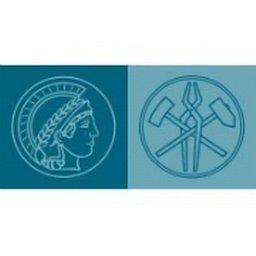This PhD project is part of a European collaborative project (MPI SusMat, UC Louvain, TU Delft). The ultimate goal of the project is to disentangle the correlation among alloying elements, microstructure, chemistry evolution, and reaction kinetics during combustion and hydrogen-based direct reduction cycles of iron-based powders, revealing the critical role of alloying elements in the redox cycles. The acquired fundamental knowledge will facilitate the integration of waste materials or fine ores into future sustainable energy cycles.
Your tasks:
Your tasks will include:
- To develop a thermodynamics model to predict phase stability
- To conduct hydrogen-based direct reduction experiments and investigate the reduction kinetics of iron powders
- The microstructure characterization of the reduced samples using microscopy techniques (e.g., SEM, EBSD, EDX), X-ray diffraction, and atom probe tomography
- To evaluate, analyze, and interpret the results
- Manage the collaborative project
- Publish scientific results in renowned international research journals and scientific conferences
Eligibility Criteria
- A master’s degree (or equivalent)
- The Ph.D. candidate will be enrolled in the TU Delft’s Grad School and PhD program, thus the candidate must fulfill the . The submitted documents will be checked upon receipt.
- The position requires English proficiency at a certain level to ensure that the candidate is able to communicate and interact well, participate in English-taught Doctoral Education courses, and write scientific articles and a final thesis. For more details, please check the .
- Solid background in Materials Science, Metallurgy, Chemistry, Physics or a related field.
- Knowledge in microstructure formation and physical metallurgy
- A strong inclination towards experimental work
- Excitement and strong motivation for the research
- Proficiency in English to communicate effectively on scientific topics
- Knowledge of electron microscopy and X-ray diffraction techniques
- Experience in software programming (e.g., phyton and MATLAB)
You will be part of a European collaborative research team, and the PhD position is located at MPI SusMat in Germany, closely working with partners at UC Louvain in Belgium and TU Delft in the Netherlands. We offer a stimulating research environment with high-level experts, and access to cutting-edge research equipment both in experimental and simulation. Additional opportunities include secondments to partner laboratories at TU Delft, a range of advanced training courses, and active engagement in workshops and international conferences, providing a well-rounded and enriching research experience. The appointment will be for a period of 3 years, with the possibility to extend if the scientific progress and funding permits. Doctoral candidates receive a so-called support contract according to 65% of TVöD group 13.
The Max Planck Institute for Sustainable Materials is committed to employing more handicapped individuals and especially encourages them to apply. The Max Planck Society strives for gender and diversity equality. We welcome applications from all backgrounds.
If you are interested in this vacancy, please apply with the following documents via our online application portal before the 30st of June 2025:
- A short motivation letter (1/2 page)
- A detailed CV with a focus on educational and scientific background
- Transcripts of your master and bachelor studies
- Proof of English proficiency (TOEFL iBT/IELTS/Cambridge Assessment English)
- Contact information of two references
Dr.-Ing. Dirk Ponge
Job melden


